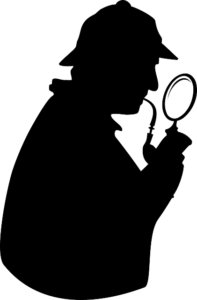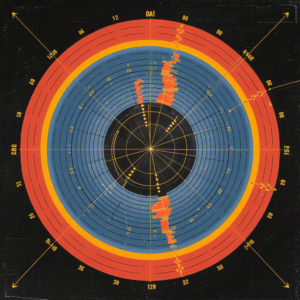DON'T DO WHAT I FIRST DID!
In preparation to write my first mystery novel, I watched random videos on YouTube by successful authors and successful book marketers, all of whom had great information about how to write books. The videos usually take one subject at a time, and when you watch videos in some random fashion, which I did, you wind up overwhelmed with information and no way to organize it or process it. The purpose of this blog post is to give some tips from one beginner to another. This is more like a how not to do things vs. how to do things. The purpose of this post is to help you not waste time and energy and to get right down to business, which I wish I did.
ARE YOU A PANTSER OR A PLOTTER?
 When I began to hear terms like “panters and/or plotter” I didn’t even know what they were talking about. A pantser, if you don’t know if someone who just sits down and begins to write “by the seat of their pants” without any organization and without any plot line. They approach the writing from a completely creative process. I imagine that “natural writers” would take this approach. Maybe people who like chaos would take this route. But I would wind up staring at a blank page all day if I didn’t have at least an outline.
When I began to hear terms like “panters and/or plotter” I didn’t even know what they were talking about. A pantser, if you don’t know if someone who just sits down and begins to write “by the seat of their pants” without any organization and without any plot line. They approach the writing from a completely creative process. I imagine that “natural writers” would take this approach. Maybe people who like chaos would take this route. But I would wind up staring at a blank page all day if I didn’t have at least an outline.
I knew I was going to be a plotter right from the beginning. So your first order of business in writing a novel is to then have your plot line. That sounds easy enough, right? Well, depending up on what type of book you are writing, this will determine what type of plot line you will need. For example: If you are writing a true crime novel, you have a chronology of events that is pretty much written in stone. So you will have a ready-made plot line. If you are writing a fictional novel, then you have to write a chronological plotline and you need to determine where to drop clues, where to begin subplots, where to hide subtle clues as to the real villian, where to throw in a red herring or two, etc. This is where it can get a little tricky.
MYSTERIES BEGIN WITH A CRIME AND ARE PLOTTED BACKWARDS:
It took me awhile to realize that it is too easy to write yourself into a corner with no way out if you start writing from the characters. Many of the how-to videos I watched in the beginning said that it all beings with characters and conflict. This is true that each story has characters and conflict, but most mysteries have some kind of a crime and/or injustice. Once I realized that it is easier to begin with the crime and plot backwards, this made things much easier.
REVERSE ENGINEERING A CRIME/MURDER:
1. How is the victim killed and/or harmed?
2. Who is responsible? (This gives you your murderer)
3. Who else in the story has motive to kill the victim? (This gives you your multiple suspects)
4. Who is completely innocent but looks really guilty? (This gives you your red herring)
5. Where does the plot/murder take place? (factory, park, someone’s house, outside a bar?)
6. Who ultimately solves the crime? (This gives you your protagonist)
7. Who is working against the solving fo the crime? (This gives you at least one antagonist)
8. Who wanders in and winds up having a romance with the protagonist? (This gives you your romantic subplot)
A LITTLE BIT ABOUT THE LOCATION OF THE CRIME/MURDER:
 It is best as a beginner to choose a location and setting that you are familiar with. It will cut down on the research you need to do, as you will need to do at least some forensic and police procedure research. For example: I used to be a court reporter for 11 years and I have experience working on criminal cases, how prisoners are moved around the courthouse, how sheriff’s officers and prison guards are different from cops, what goes on in a Judge’s chambers on breaks and after the jury goes home. So this is a good setting for me to write about.
It is best as a beginner to choose a location and setting that you are familiar with. It will cut down on the research you need to do, as you will need to do at least some forensic and police procedure research. For example: I used to be a court reporter for 11 years and I have experience working on criminal cases, how prisoners are moved around the courthouse, how sheriff’s officers and prison guards are different from cops, what goes on in a Judge’s chambers on breaks and after the jury goes home. So this is a good setting for me to write about.
Let’s say you worked in a bar and restaurant when you were in college. You know the intricacies of this setting. Wherever you worked will be a good setting to work with because you already have intricate knowledge about how it all works. This cuts down on wresting with too much in your first novel.
THE MAIN CHARACTER:
 One of the biggest mistakes I made in the beginning was focusing too much on the main character. With a mystery, you need to have a unique crime that hasn’t been done before. Because there are millions of mystery books, your specific crime may have been done, but you want to make sure you don’t pick on that has been “done to death”.
One of the biggest mistakes I made in the beginning was focusing too much on the main character. With a mystery, you need to have a unique crime that hasn’t been done before. Because there are millions of mystery books, your specific crime may have been done, but you want to make sure you don’t pick on that has been “done to death”.
So all of the thinking I did regarding who the main character would be was for naught. It was a waste of time. It all started with the mystery/murder and the motive and antagonist. That’s where I ultimately started -- after I had to wipe out a lot of the erroneous information I had taken in about the lead character being the main focus. In a mystery novel, in the planning stages, the mystery/murder is the genesis of the story.
Once you have your crime and a group of suspects, the protagonist almost creates him or herself. It comes down to who would likely solve this crime? Is it a cozy mystery with an Aunt Mildred as the top sleuth or is it a police procedural mystery where it will be all about how the cops outwit the murderer? In my case, I chose a private investigator as I wanted him to be someone who had a friendship with a priest so I could have a Christian/Catholic backdrop to the story. By picking a private investigator, I also allowed for a little leeway on police procedure. A PI is more likely to break the rules and go rogue than a cop these days and the police procedures are so technical now that unless you are an ex cop or you have someone you can literally call a few times a week to run things by them, then you will have a lot of research to do.
WHERE TO GET INSPIRATION FOR CRIMES?
I watched Forensic Files for awhile and paid particular attention to the chronology of how they solved the crimes, what the cops did, and what the scientists did. They have such unusual crimes on these shows and such an array of them, this is a good source of inspiration. I tried checking my local papers, but 95% of the cases are drug cases or random shootings and they don’t make interesting plot lines by themselves.
If you have any other advice for us beginning writers and wish to share with us, please contact me and I would be happy to do a blog post or video featuring your lesson or tips for us.





